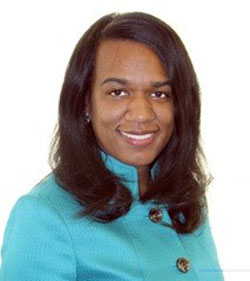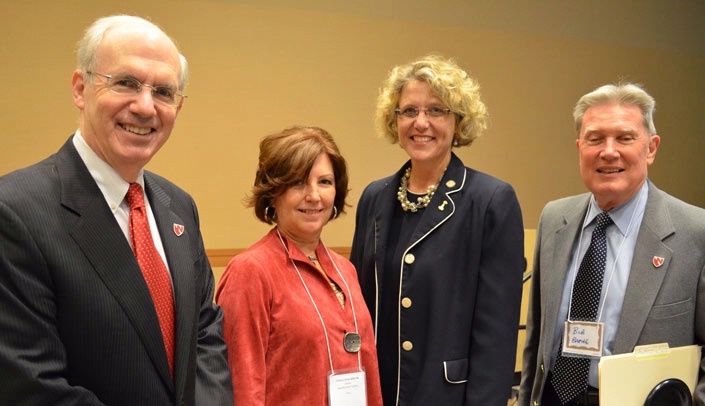Organizations and individuals striving to improve the health of Nebraskans attended a two-day summit at UNMC on Oct. 15 and 16. It was broadcast live to UNMC sites in Lincoln, Kearney, and at Norfolk Faith Regional Health System.
Health care organizations, businesses, and thought leaders represented at the Defining a Culture of Health in Nebraska learned about and discussed solutions to promote better health and reduce health disparities.
 |
Courtney Phillips, Ph.D. |
The summit featured talks by State Sen. Sue Crawford, Ph.D., of Legislative District 45 in Bellevue, Courtney Phillips, CEO of Nebraska’s Department of Health and Human Services, Kathryn Wehr, a program officer at the Robert Wood Johnson Foundation and UNMC and Nebraska Medicine faculty and staff members.
Dr. Crawford talked about public health strategies being addressed by the legislature and those that have been adopted. She said in Nebraska, the inability to access health care has economic consequences and that it will require all health systems, public, private and community partners to help make Nebraska one of the healthiest places.
She said some of Nebraska’s public health challenges include alcohol consumption, a high incidence of infectious disease and obesity rates. On the other hand, there has been an increase in childhood immunization rates and high school graduation rates and a decrease in childhood poverty.
Still, there’s a lot of work to do.
Dr. Crawford said 32 percent of Nebraskans live at or below 200 percent of the federal poverty level and spend 37 percent of their income on medical spending whereas the average Nebraskan spends 2 percent.
“That is a huge disparity. We know poverty is a challenge to health. How do we make sure we are attentive to this? This level of out-of-pocket spending is unsustainable,” Dr. Crawford said.
Phillips, who has been on the job six months, noted that Nebraska ranking the 10th healthiest state is good — but it’s not number one.
“We can do it,” she said. “We need to find out what the problems are and need to start diving in a little deeper to make an impact,” Phillips said. “I’m excited about the work we have to do. We have great possibilities.”
The summit was organized by a coalition of health organizations including the Nebraska Action Coalition-Future of Nursing, Nebraska Nurses Association, Nebraska Organization of Nurse Leaders, and Nebraska Assembly of Nursing Deans and Directors.
